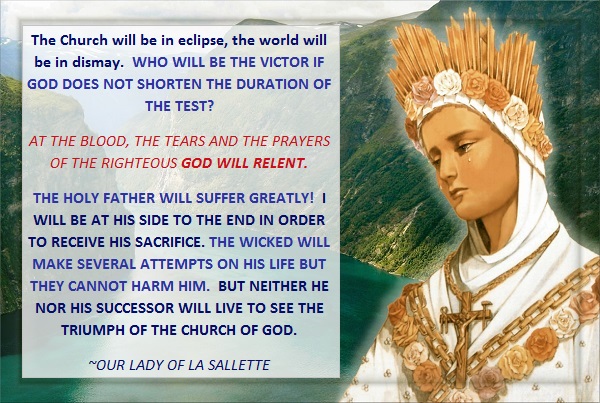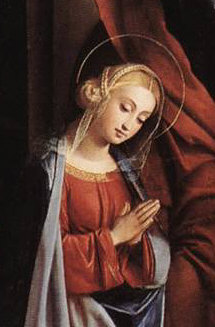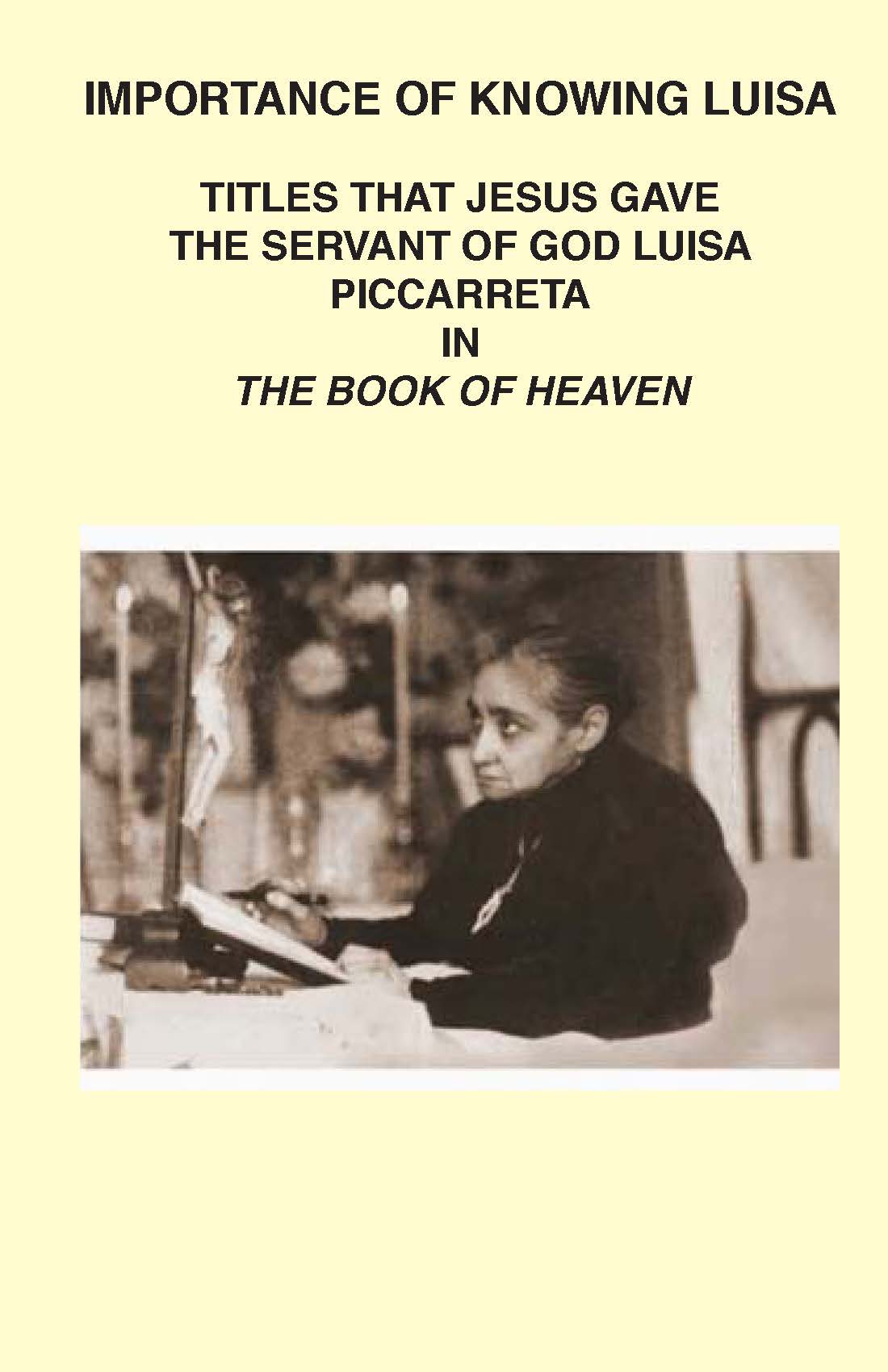 Loading...
Loading...
Permanent link to this article: https://bookofheaven.org/2017/09/20/gospel-reading-for-september-20-2017-with-divine-will-truths-gods-wisdom-acts-as-a-talented-artisan/
Sep 20
Rosh Hashana and the Month of Tishrei – Rosh Hashana begins at Sundown September 20, 2017
Rosh Hashana and the Month of Tishrei
The following is from: http://www.aish.com/jl/hol/hm/48958856.html
In a certain sense Tishrei is the most Jewish of all the months. Even people who for whatever reason no longer feel the stirrings of something beyond the material confines of day to day life, sometimes feel something move within them when they think about Rosh Hashana, Yom Kippur and Sukkot – all of which take place in this month.
Tishrei is the first month on any Jewish calendar, but in the Torah we see something rather perplexing; it is referred to consistently as the seventh month, not the first.
This disparity is caused by two different ways of counting one month. One is to begin with Creation, what Jews see as the most central event to ever take place. We therefore unhesitatingly call it the first or primary month.
God however sees it from an entirely different angle. To Him, the most significant moment in time was the Exodus from Egypt, which made us a people and opened up the door for our accepting His word as our guide. Nothing could be as primary to the world’s existence than that day. This is why Nissan, the month in which the Exodus took place, is referred to consistently in the Torah as “the first month.” According to this way of counting, Tishrei is the seventh month of the year.
This way of thinking doesn’t relegate Tishrei to being just another package of time. Being month seven is also a major statement. There is inherent mystery and significance in the number seven. It isn’t a coincidence that Shabbos is the seventh day. Any physical object has six sides, which we refer to as “surface.” The inside is the seventh aspect, the part that cannot be seen when we look exclusively on the outside. Time is like a seed that has the DNA for its entire future. As it grows, all of its hidden potential is awakened. In the same way, all of the light that was infused into each of the holy days of this month is released slowly over the course of time so that we experience the spiritual potential of these days every year.
What would we see if we looked at the inside of creation and saw its meaning just as vividly as we can look at the outside of creation through a microscope, National Geographic, or space ship?
The ancients saw the world as a macrocosm, a giant human being. In turn, each one of us is a microcosm, a miniature world. We are just beginning to scratch the surface and reveal something of the world’s “brain”, the biological programs that contain the essence of everything that we experience. We can talk about the molecular building blocks of matter and about genetic programs, while not too long ago both areas were shrouded in mystery. Even if one day soon, we would somehow put all the information together meaningfully, as Einstein dreamed of doing when he endeavored ceaselessly to uncover what he called a “unified theory,” at most we would see the way the world works from the outside in.
The seventh month, Tishrei, is the time that we can look at the world from the inside, from its spiritual core outward, its unified theory and building blocks.
Only Man is capable of meaningful spiritual response.
Rosh Hashana is the head of the year. In the same way that the head directs the actions of the body, the first day of Tishrei, Rosh Hashana, is the head of the year spiritually. It is the anniversary of the day that God created man. All the other creations, which receive their life force from God, who is sometimes called “soul of the universe,” have no possible means of responding to Him. Man is capable of meaningful spiritual response. We humans interpret reality and can chose to discover God’s hidden hand, or conversely relegate everything to its most superficial external level of interpretation.
For our forefather Abraham, seeing a sunrise was a question that demanded an answer. As the answer became progressively clearer, looking at the same sunrise became a passion driven religious experience. The clarity that he had at that moment is exactly what God envisioned for man at the time of creation. It is for this reason that when the Torah sums up the creation narrative, it says “These are the progeny of heaven and earth on the day they were created” (Genesis 3). The Hebrew word for “They were created,” — bi’hibaram — has the same Hebrew letters as the word ‘bi’Avraham,” which means “with Abraham.” From God’s perspective the entire cornucopia of reality was worth bringing into existence for the sake of Abraham, who would actualize the plan that God had for Adam, the first man, when He told Adam to conquer the earth. The intent was not to tell Adam, the prototype of every future human, that he could exploit the world for his own gain. It was to tell him that he could conquer the world’s external reality, and make it his own by learning its meaning and making it his own.
Once Rav Kook was walking with one of his students. As they walked together, the younger man absentmindedly picked leaves off the shrubbery that grew on the side of the road. He noticed that Rav Kook winced as he did this and asked, “Is everything alright?” av Kook replied that everything in the world has purpose and meaning, and nothing should be randomly destroyed.
Rav Kook was fully aware that the leaves were unlikely to be useful in the mundane sense of the word. They were useful in a deeper sense; they could be part of our process of becoming aware of the beauty and intricacy of creation and the unknowable wisdom of the creator.
“Every year,” the Arizal, the great mystic scholar who lived in Sefad close to 500 years ago, tells us that “on Rosh Hashana new intellectual light enters the world, opening our minds to see what Adam saw.” It is a day in which we can evaluate who we are, where we are going, and to what degree our lives are truly lived in a way that is truly human.
Yom Kippur is the heart of the year. It is a day of forgiveness and reconciliation in which we can fearlessly enter the forest within us to explore the deepest parts of our lives, the areas that are too shadowy for us to see or even want to see. When we examine ourselves honestly, inevitably we will find that we have at times blocked out our ability to see more that life’s superficial side. No one is perfect, and in fact one of the greatest problems that we have is that we have to at least fool ourselves into believing in our own perfection. We rationalize, reframe, and deny away our spiritual and moral failures.
On Yom Kippur, we can look deeper and more honestly at ourselves. We will find that underneath all the layers there is goodness, purity, and yearning. God imbued this day with the power to let us tear aside all the curtains, and see ourselves not as we have become, but as we want to be. We would never be able to achieve this level of redefinition on our own. Yom Kippur is a day in which God channels down forces that opens up the doors for us. We can be brave and honest enough to walk through the doors joyously, or we can close our eyes to their existence. God won’t force anyone to open the door.
Instead of trying to feel more secure, we try to get a taste of life’s transience.
Barely a few days pass, and Tishrei shows another aspect of the internal workings of reality. Sukkot arrives, and we celebrate our newly won closeness to God by moving into a sukkah, a shack-like structure with no permanent roof. For a full week we reverse most of what we do the rest of the year. Instead of trying to feel more secure, we try to get a taste of life’s transience. Instead of inviting just Marg and Vel, and maybe a few students or people passing through, we invite the Patriarchs, Moses, Joseph and David. They are part of our inner world, and we try to make them at home with us as we try to make us aware of them, and depth and permanence of the imprint that they have left upon us as a people.
We let our sensitivity to the spiritual bond that we have with every Jew regardless of who he is find expression in the four species of plants that the Torah commands that we take and bless. The lulav (palm branch) which has a taste but no smell, is compared to a Jew who is intellectual aware of the Torah’s truth, but doesn’t let it flow down to affect his deeds. The etrog (citron) has both taste and smell and is compared to one who is fortunate enough to have both knowledge and good deeds express his personality. The hadassim (myrtle) has smell and no taste, symbolizing a person with deeds but nothing to back it up with intellectually. Finally the aravot, (willow) which has neither taste nor smell, which we hold with the same devotion as the etrog which has both, is the icon of one who lives in a world in which there is no consciousness and no deeds. He too is part of our people, and we need to love him unconditionally just as much as he needs our unconditional love.
Tishrei’s last holiday, Simchat Torah, says it all. There is a world out there. We want to learn it, love it, and navigate it. We will never allow ourselves to content our minds and hearts with its outer contours. We’ll walk its spiritual alleys and streets, and we’ll follow the instruction book that reveals the blueprint that is the core of its being. We’ll let our spiritual and physical joy at having a map that reveals it all take us over.
Have a great Tishrei and a great New a year.
Permanent link to this article: https://bookofheaven.org/2017/09/20/rosh-hashana-and-the-month-of-tishrei-rosh-hashana-begins-at-sundown-september-20-2017/
Sep 19
Feast Day of Our Lady of La Salette
Our Lady of La Salette – September 19

Prof. Plinio Corrêa de Oliveira
On September 19, 1846, Our Lady appeared to two small shepherds, Maximin Giraud and Melanie Calvat. The beautiful lady, as the children called her, appeared in an attitude of profound sadness asking prayers and penance to help her prevent the arm of her Son from falling over mankind for its sins. Our Lady also revealed to the shepherd children a secret. Since this apparition took place on the mountain called La Salette in the Diocese of Grenoble, France, a new invocation of Our Lady soon spread throughout the world – Our Lady of La Salette. There have been three major apparitions of Our Lady in the last 150 years: La Salette, Lourdes and Fatima. In all of them the Church accepted the authenticity of the apparitions and endorsed them by making special feasts to commemorate them. In each of those three apparitions Our Lady left a secret. In all of them, Our Lady manifested herself as profoundly sad because of the state of mankind, and predicted an enormous chastisement that would come at a chosen moment. Therefore, in the last 150 years Our Lady has adopted a position very similar to that of counter-revolutionaries. You all know members of the High and Low Clergy as well as Catholic lay people who are very happy, who think that everything is going very well. If you tell these people that a chastisement is being prepared for mankind, they respond that it is absurd. They affirm that Religion is experiencing an extraordinary progress. Next to such persons, we look gloomy and sad. We play the role of the pessimistic hypochondriacs who do not fit into the joyful, carefree atmosphere of our days, which always disseminates an optimistic and positive opinion about everything.
Our role is a hard one, because it is always hard to foresee and announce chastisements for a mankind turned toward enjoying life. It is not surprising that very few people are willing to believe and follow our political and religious perspectives regarding events, which demonstrates the ever greater victory of the Revolution. They do not want to hear about the great chastisement that God is preparing. Since Our Lady herself brought three major messages that were not accepted, it is not surprising that our apostolate also is not well received. This is characteristic of all epochs that take the wrong path. When people hear someone saying that they are going astray, they do not listen. For this reason, the great chastisements come. If the people would listen, they would convert and the chastisement would be averted. It is precisely because they do not open their souls to the message that the catastrophe becomes inevitable. The fact that they do not believe in Our Lady’s messages is the proof that those messages will be fulfilled. Someone could object: One hundred and fifty years have already past and nothing has happened. How have these messages been fulfilled? I sustain that in ovo (in the egg; in its seed) the great chastisements have begun. Our Lady appeared in La Salette in 1846; in 1870 the Franco-Prussian war started as a result of the rivalry between France and Germany. This rivalry would reach an apogee in 1914 and be the most profound cause for World War I, as well as for World War II. The quarrels of WWII still have not been resolved completely and the perspective of a World War III lies on the horizon. A possible WWIII with its nuclear apocalypse could very well be the start of the great chastisement predicted at La Salette and Fatima.
The great chastisements of God defy the patience of those few who are faithful. The most characteristic example was the Deluge where everybody laughed at Noah who was building his ark in expectation of a great chastisement. It took him 100 years to complete his work, and then the Flood came. At times Noah might have been tempted to think that he was wrong and that the people laughing at him were right. But he did not relent. He remained faithful to the message he received from God and continued to prepare for the chastisement. The fact that it took a long time to come did not mean that it would not come; rather, it meant that it would be an enormous chastisement. Our Lord predicted that the Temple of Jerusalem would be destroyed. When He died, an earthquake shook its floors and the veil of the Temple was rent in the middle. Some walls were damaged but the Temple remained standing. Decades passed and the prophecy was not fulfilled. Several times the faithful of Jerusalem thought that the signs were ripe for the chastisement and fled to the mountains, as Our Lord had advised them to do. However, nothing happened and they returned to their normal lives, perhaps a little discouraged. Then, 40 years after Our Lord’s death, and apparently by chance, a soldier from the army of Titus threw a torch into one of the side windows of the Temple. A fire started and spread quickly, engulfing all the buildings. Then, in truth, not one stone remained over the other just as Our Lord had predicted. Afterward the Temple was never rebuilt.
We should be convinced that we were chosen to be among the few who listen to the voice of Our Lady and wait for the chastisement she predicted. These cherished ones must give proof of their love. They must give proof of their fidelity before the word of God is accomplished. This is the situation we are in. I do not know how many years we must await for the promises of La Salette and Fatima to be fulfilled. At times we think: “Now it has to come, because it is impossible for the situation to be any worse.” Then, it does not come. The stormy sky releases just a few drops of rain and the clouds dissipate. Again the sky becomes stormy… People laugh at us. We should remember Noah. When the rain finally fell, it was the Deluge. To confide against all appearances and to believe after all the delays is what God requires of those with whom He selects to make His alliance. This is the great teaching of La Salette. This is the spirit we should ask to receive on the feast day of Our Lady of La Salette: to have a blind confidence in her promise and to be certain that its fulfillment will come. |
Permanent link to this article: https://bookofheaven.org/2017/09/19/feast-day-of-our-lady-of-la-salette/
Permanent link to this article: https://bookofheaven.org/2017/09/19/gospel-reading-for-september-19-2017-with-divine-will-truths-raising-the-souls-who-will-live-in-the-divine-will/
Permanent link to this article: https://bookofheaven.org/2017/09/15/feast-day-of-our-lady-of-sorrows-september-15-consoling-the-celestial-mama/
Permanent link to this article: https://bookofheaven.org/2017/09/14/feast-of-the-triumph-of-the-cross-september-14/
Permanent link to this article: https://bookofheaven.org/2017/09/13/gospel-reading-for-sept-13-2017-with-divine-will-truths-new-beatitudes-for-the-soul-who-lives-in-the-divine-will/
Sep 12
FEAST OF THE MOST HOLY NAME OF MARY
FEAST OF THE MOST HOLY NAME OF MARY
CLICK IMAGE FOR MORE INFORMATION

The Most Holy Name of Mary
The Holy Name of Mary – The Power of Her NameBy St. Alphonsus de Liguori
|
Permanent link to this article: https://bookofheaven.org/2017/09/12/feast-of-the-most-holy-name-of-mary-2/
Permanent link to this article: https://bookofheaven.org/2017/09/12/gospel-reading-for-september-12-2017-with-divine-will-truths-the-soul-who-lives-in-the-divine-will-heals-the-mystical-body/
Permanent link to this article: https://bookofheaven.org/2017/09/10/xxiii-sunday-in-ordinary-time-2/





















